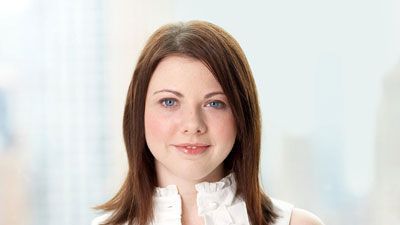
CA: The breakouts along my jawline are getting worse. I first thought it was from bacteria on my phone, so I wiped down the receiver every day with rubbing alcohol. Then I thought it was my hair products, so I wore my hair off my face. Nothing worked.
AW: Are there small nodules far beneath the surface of the skin? And does the affected area start under your ear and extend below your chin?
CA: Yes to both.
AW: What you're describing sounds like hormonal cystic acne—oil-filled pimples that lie deep below the surface. Abnormal hormone levels can also lead to irregular menstruation cycles, hair growth along the upper lip, and a thinning hairline. Do any of these ring true for you?
CA: My periods have been irregular since I went off the Pill, which is also when the acne started.
AW: Hormonal acne occurs when testosterone levels spike and start to bind to the skin's androgen receptors. Birth-control pills reduce testosterone levels.
CA: How can I prevent it without going back on the Pill?
AW: Cystic acne is best treated by a dermatologist. Possible remedies include oral antibiotics like doxycycline, topical medications like Tazorac, and laser treatments like Isolaz.
CA: I've also always had rosy cheeks, but they've gotten redder—sometimes looking like a rash. My sister has rosacea. Could I have it, too?
AW: Rosacea is very common—about 14 million Americans have it—and usually starts around age 30. We haven't found the exact cause but do know that it's a type of inflammation that dilates facial blood vessels, resulting in redness around the forehead, nose, cheeks, and chin. Do you notice the ruddiness worsening after exercise, hot showers, eating spicy foods, or drinking red wine?
CA: I've definitely been aware of it after hot showers and working out.
AW: Your case sounds mild, so the best thing you can do is avoid your triggers. Of course, you don't want to stop exercising, so try daily creams for redness relief—those with green tints tone down flushing.
CA: Should I be careful of other things I put on my skin, like antiaging products?
AW: At your age, the best thing you can do is avoid the sun, which signals the body to produce more blood vessels. Sunscreen is essential. If your rosacea gets worse, see a dermatologist.
Stay In The Know
Marie Claire email subscribers get intel on fashion and beauty trends, hot-off-the-press celebrity news, and more. Sign up here.
CA: Thanks. I'll cover up with some new sunglasses as well!
-
 Heidi Gardner Opens Up About Viral Moment She Broke Character During ‘Saturday Night Live’ Beavis and Butt-Head Sketch
Heidi Gardner Opens Up About Viral Moment She Broke Character During ‘Saturday Night Live’ Beavis and Butt-Head Sketch“I just couldn’t prepare for what I saw.”
By Rachel Burchfield Published
-
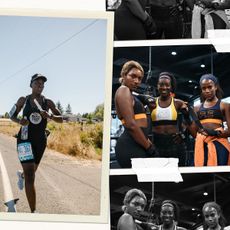 Fashion, Family, Fitness: The 3 Guiding Principles of 'MC' Editor-in-Chief Nikki Ogunnaike and How They Intersect in Her Life
Fashion, Family, Fitness: The 3 Guiding Principles of 'MC' Editor-in-Chief Nikki Ogunnaike and How They Intersect in Her LifeBy Nikki Ogunnaike Published
-
 Caitlin Clark's WNBA Draft Glow Is Courtesy of Glossier
Caitlin Clark's WNBA Draft Glow Is Courtesy of GlossierShe even wore a just-launched product from the brand.
By Julia Marzovilla Published
-
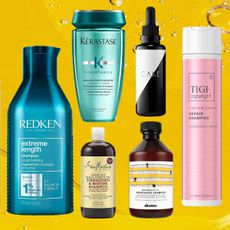 The 32 Best Hair Growth Shampoos of 2024, According to Experts
The 32 Best Hair Growth Shampoos of 2024, According to ExpertsRapunzel hair, coming right up.
By Gabrielle Ulubay Published
-
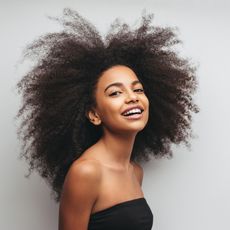 The 20 Best Hair Masks for Damaged Hair, According to Experts and Editors
The 20 Best Hair Masks for Damaged Hair, According to Experts and EditorsHealthy strands, here we come!
By Gabrielle Ulubay Last updated
-
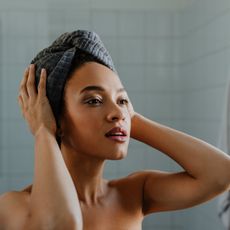 How Often You Should Wash Your Hair, According To Experts
How Often You Should Wash Your Hair, According To ExpertsKeep it fresh, my friends.
By Gabrielle Ulubay Published
-
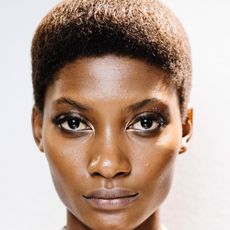 The 11 Best Magnetic Lashes of 2023
The 11 Best Magnetic Lashes of 2023Go ahead and kiss your messy lash glue goodbye.
By Hana Hong Published
-
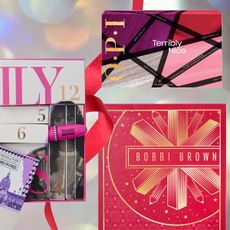 Beauty Advent Calendars Make the Perfect Holiday Gift
Beauty Advent Calendars Make the Perfect Holiday GiftThe gift that keeps on giving.
By Julia Marzovilla Last updated
-
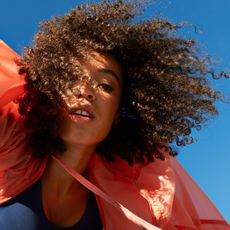 The 18 Best Natural Hair Products in 2023
The 18 Best Natural Hair Products in 2023Remember: Your curls are your crown.
By Gabrielle Ulubay Published
-
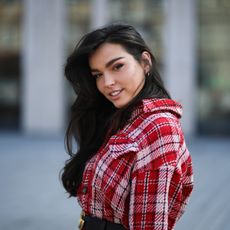 The 9 Best Hot Rollers for the Curls of Your Dreams
The 9 Best Hot Rollers for the Curls of Your DreamsThis is how we roll.
By Samantha Holender Published
-
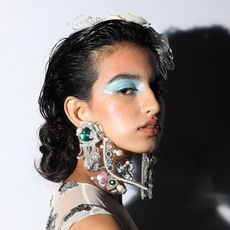 The 12 Best Cream Eyeshadows, According to Makeup Artists
The 12 Best Cream Eyeshadows, According to Makeup ArtistsThe best part? They’re so easy to apply.
By Samantha Holender Published